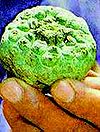Wikipedia:Today's featured article/July 2, 2005
The Convention on Psychotropic Substances is a United Nations treaty designed to control psychoactive drugs such as amphetamines, barbiturates and LSD. During the 1960s, drug use and abuse exploded worldwide, especially in the Western developed nations. Availability of stimulants soared as manufacturers and traffickers took advantage of the inconsistent patchwork of national laws to circumvent restrictions on production and trade. The Single Convention on Narcotic Drugs of 1961 could not regulate the plethora of newly-discovered psychotropics, due to its limited scope. On February 21, 1971, plenipotentiaries signed the Convention, which was worded broadly enough to be capable of encompassing almost any mind-altering substance. Today, 175 nations are Parties to the treaty, which contains import and export restrictions and other rules aimed at limiting drug use to scientific and medical purposes. Many laws have been passed to implement the Convention, including the U.S. Controlled Substances Act, the U.K. Misuse of Drugs Act, and the Canadian Controlled Drugs and Substances Act.
Recently featured: Vanilla Ninja – Military history of Puerto Rico – RMS Titanic
